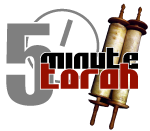
Day 1
Genesis 21; Numbers 29:1-29:6
Day 2
Genesis 22; Numbers 29:1-29:6
If you don’t know, or don’t remember, this Friday night begins Rosh Hashanah / Yom T’ruah / Feast of Trumpets. It is celebrated for 2 days, and the readings for these days commemorate both the commandment to celebrate this event and the birth and binding of Isaac. What do these have in common? More than you might think…
The Talmud tells us that Rav Saadiah Gaon makes the following correlation:
The sound of the shofar is “a reminder of the Akedah, since the ram that was substituted for Isaac was caught in the thicket by its horns.” R. Abbahu said: “Why do we blow a ram’s horn [on the New Year]? The Holy and Blessed One said: ‘Sound before Me a ram’s horn so that I may remember on your behalf the binding of Isaac the son of Abraham and account it to you as if you had bound yourselves before Me.'”(Rosh Hashanah 16a)
With this in mind, we must also look to the daily liturgy as well. Every morning, the pious Jew (and some of us goy weirdos) pray from the Siddur, the Jewish prayer book. In the morning prayers we recite the Akeidah — the Binding of Isaac (Genesis 22:1-19). Before and after this reading we a blessing connected to the mitzvah of recalling the Akeidah. The concluding blessing includes the following:
“Master of the universe! May it be Your will, Hashem, our God, and the God of our forefathers, that You remember for our sake the covenant of our forefathers. Just as Abraham our forefather suppressed his mercy for his only son and wished to slaughter him in order to do Your will, so may Your mercy suppress Your anger from upon us and may Your mercy overwhelm Your attributes. May You overstep with us the line of Your law and deal with us — O Hashem, our God — with the attribute of kindness and the attribute of mercy. In Your great goodness may You turn aside Your burning wrath from Your people, Your city, Your land, and Your heritage.”
Too many times Judaism gets a bad rap, because people think that it is a religion that does not know about grace and mercy. There has never been anything further from the truth. It is obvious from this prayer that Judaism teaches that we need to reckoned to Hashem not through the just penalty of the Law that we all deserve, but rather through the grace and mercy of Hashem as expressed through the shed blood of His very own son. This is why Hashem’s Thirteen Attributes of Mercy (Exodus 34:6-5) are recited within the Rosh Hashanah prayers. We call upon the Almighty who acts in mercy on behalf of His creatures, relying upon His mercy that is displayed through His very own law. We are to “Speak and act as those who are going to be judged by the law that gives freedom.” Why? “Because judgment without mercy will be shown to anyone who has not been merciful. Mercy triumphs over judgment!” (James 2:12-13)
Let mercy triumph in your life during this season!
Similar Posts:
- Rosh Hashanah Trivia
- Rosh Hashanah Trivia Answers
- 5 Minute Torah – Va’eira
- Abraham the Disciple-Maker
- “Bless This Food”